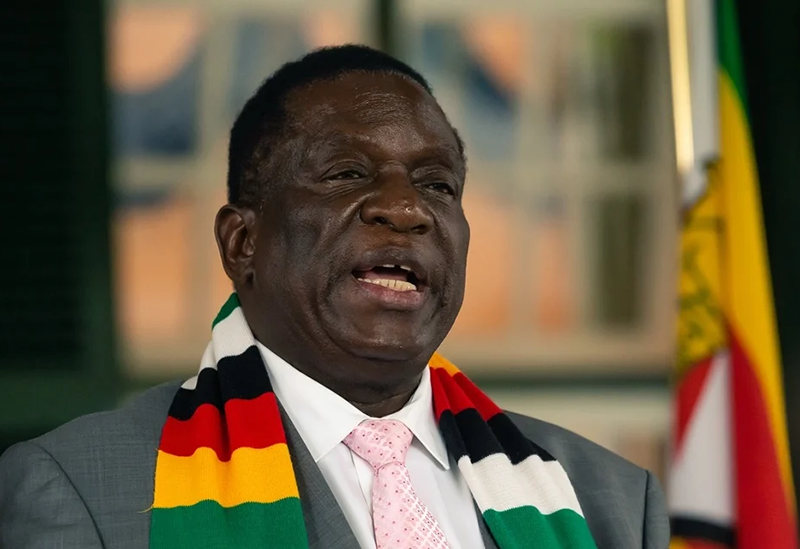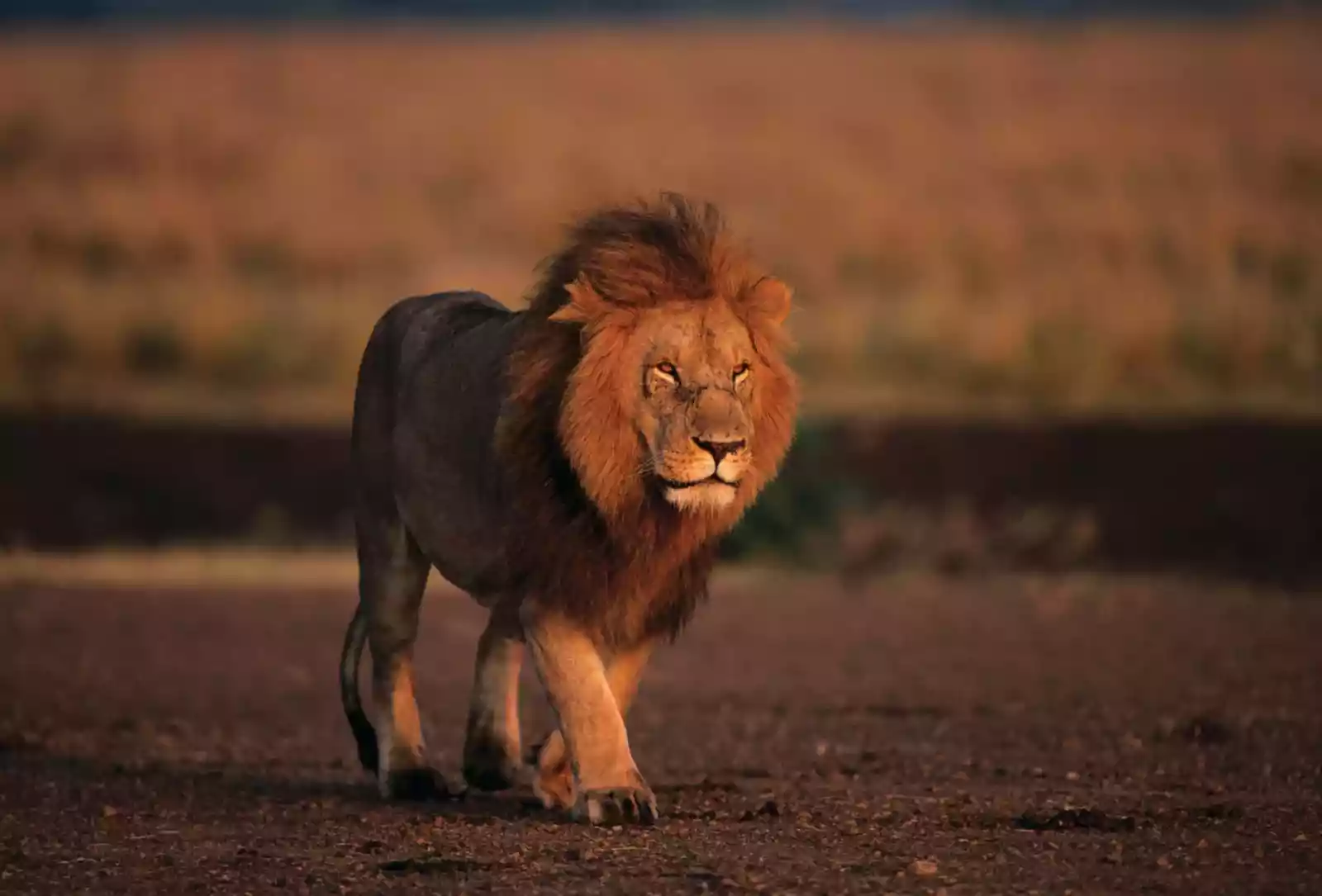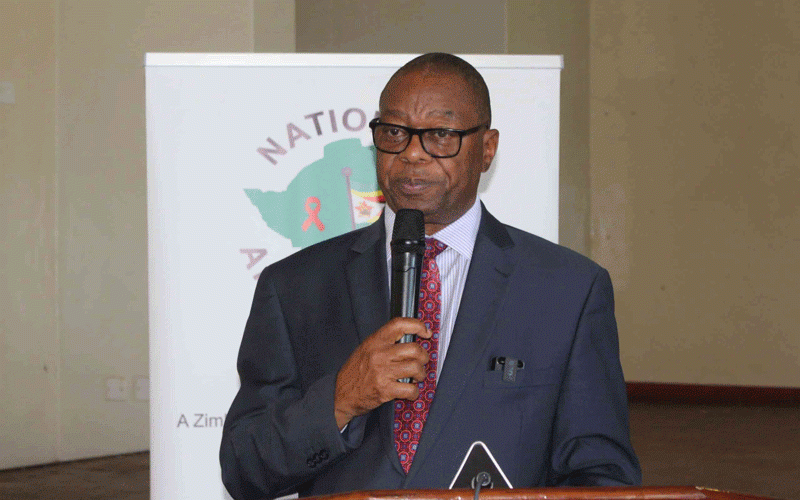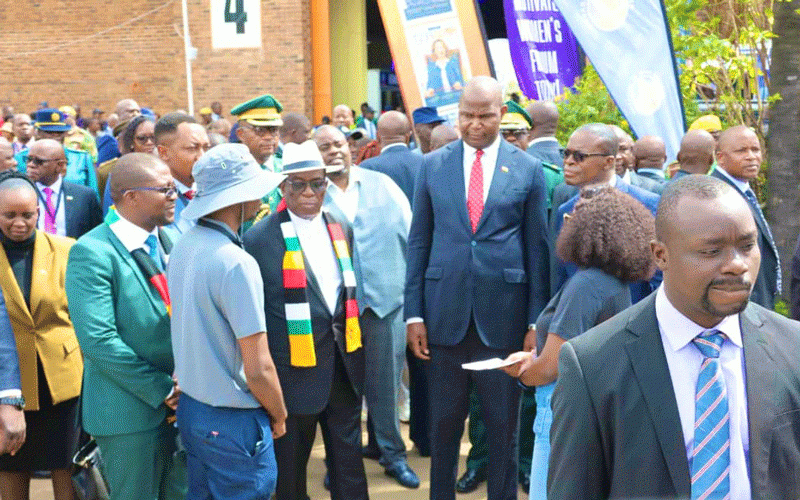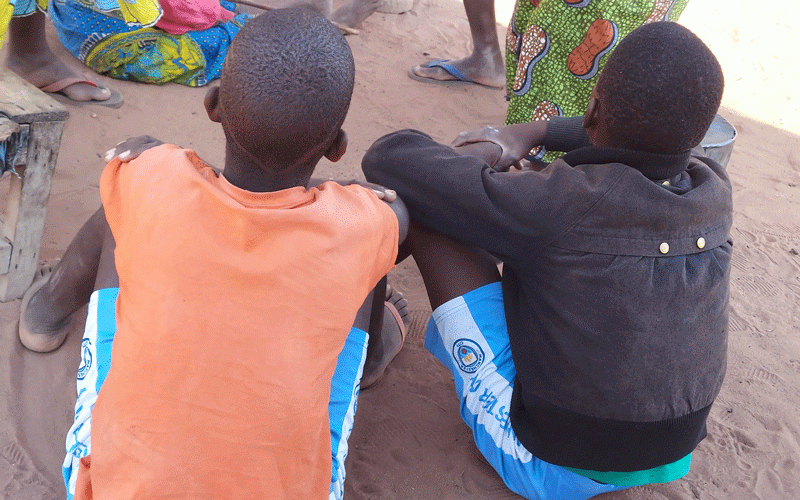
Adomesa Mudimba’s dream was to become a police officer after completing school, but that was not to be after he failed to proceed to secondary school four years ago.
His single mother failed to pay for his fees and no educational assistance scheme could come to his rescue, either.
Adomesa’s dream was shattered.
Now 17, Adomesa of Kadiki village in Siansundu ward in Binga has to face the reality of growing up in an impoverished setup where five other family members are looking up to him.
Alongside his 49-year-old mother Ndimba Mudimba, Adomesa has to fend for his ailing grandmother Saliah Munsaka (84), his blind aunt Kelesia Mudimba (60) and two other siblings.
It has not been a stroll in the park for Adomesa to bring food home considering that their area is among the climate hotspots in the country.
Their situation has been exacerbated by crop failure due to drought.
Zimbabwe, like most sub-Saharan countries, is in the grip of the 2023/24 El Nino-induced drought that saw 60% of the planted crop being written off.
- Secure your business premises: Police
- New law answers exhumations and reburials question in Zim
- DT Bio Mudimba: A sungura perfectionist
- Travelling & touring: Gandavaroyi Falls: Tourism’s hanging fruit
Keep Reading
This has made Adomesa susceptible to exploitation and is among a myriad of young people, mainly school dropouts, who are being taken advantage of by fishermen along the Zambezi River.
“I have no choice, but to go to the river where we work for the fishermen,” Adomesa said.
“In terms of payment, we just get a portion of fish, which we sometimes barter for grain.
“We are being exploited.”
Of the estimated 160 million child labourers in the world, 70% are engaged in agriculture, forestry, fisheries and aquaculture, according to the International Labour Organisation.
With the local secondary school being 50 metres away, Adomesa failed to enroll for Form 1 after his mother failed to raise the fees.
“My mother said she did not have the money to send me to secondary school,” Adomesa said.
“She even tried to engage the local leadership and school authorities for me to be included under the Beam [Basic Education Assistance Module] facility and she failed.
“My younger brothers are in primary school, but I know they won’t be able to proceed to secondary school.”
While over the years poverty has been fuelling school drop outs in Binga, the drought this year has compelled many to quit school to support their families in search for food.
The United Nations International Children’s Emergency Fund says the drought has put the education of close to two million children at risk in the country, with some dropping out of school for good and others forced to miss class.
The UN agency also said about 7.1 million children in the country are at risk of being impacted by climate-induced emergencies such as drought.
Adomesa’s duties include drying the fish and removing the fish from the nets, which makes him vulnerable to crocodile and hippopotamus attacks.
“We are at great risk of being attacked by crocodiles,” he said.
“The makeshift canoes sometimes capsize putting our lives at risk.”
Adomesa’s mother, Ndimba, said she carried the burden of the family and her son was also chipping in to assist her.
“I think you can see the situation in this home,” she said.
“There is my mother who is 84, my sister who is blind and three children all looking up to me.
“I am someone with a disability.
“My son could not proceed to school and is now doing menial jobs to assist the family.
“There is a lot of exploitation at the fishing camps, but my son has no choice.”
Ndimba said over the years, they have been growing crops, but this year the crops did not do well because of the drought.
“It did not rain as expected and the crop was a complete write off,” she said.
“We could not harvest anything.
“Our situation is dire and sometimes we eat once a day.
“Normally, we eat porridge because the grain would not be enough to cook sadza.”
She said sometimes they barter the little fish for grain.
Ndimba said they have been left out of government and donor-driven social welfare programmes due to errors in the spelling or registration of names on identification documents.
Forty-five-year-old England Mungombe from Siamuloba village in Simatelele ward said the drop in water levels in the Zambezi River has affected fishing, which could have helped ease the food situation.
“I rely mostly on farming, but sometimes we supplement our food and income through fishing,” Mungombe said.
“As a result of the drought, we are finding ourselves in a tight corner with regards to food security.
“We tried to grow crops as tutored by experts, but the rains let us down.
“Water levels have plummeted in the river as well making life difficult for us.”
Mungombe conceded that hunger was making children vulnerable to child labour with the majority working in the fishing industry while others herd cattle.
“Most of the children have dropped out of school because of hunger,” he said.
“These children are being exploited by the fishermen.
“Some have gone as far as Nkayi, Tsholotsho or other places where they are cattle herders.
“They are earning paltry wages, but they manage to send a few dollars home for parents to buy food.”
Standard People established that child labour in Binga is prevalent in subsistence farming and livestock herding.
According to a 2019 Zimbabwe Statistical Agency’s Labour Force and Child Labour survey, about 50 000 children were in child labour.
These children worked for more than 21 hours per week in economic activities including agriculture and paid employment.
An official in the district office of the Agricultural and Rural Development Advisory Services, formerly Agritex, Daima Ncube said a large number of families in Binga district were food insecure.
“The food situation is bad in Binga district,” Ncube said.
“I would say about 95% of families in Binga district are food insecure.
“This is because of the drought.
“The majority of people had planted their crops boosted by the presidential input scheme and other agricultural programmes, but because of lack of rains, the crops did not do well.
“Even drought tolerant crops were affected by the drought.”
Ncube said his department, working with partners, was encouraging communities in Binga to practice smart agriculture.
He acknowledged that most children were dropping out of school to do menial jobs and engage in child labour to support their parents to look for food.
Spiwe Sibanda, a Zimbabwe Red Cross Society (ZRCS) district field officer in Binga, said the situation was dire, with women, children, the elderly and people with disability being the hardest hit.
“My experience shows that this year’s food situation is the worst compared to previous years,” Sibanda said.
“Women, children and other vulnerable groups are the most affected.
“Binga is known to be a climate hotspot and is characterised by drought, but this year it’s terrible.”
Sibanda said the drought has also worsened the water situation in the area.
“We are also facing water challenges just because the limited rains caused the water table to be low,” she said.
As a result, Sibanda said most children with some as young as 12 years were leaving their homes in search of jobs.
She said there was lots of separation within families with children being left alone.
“Most children are being left alone in homes as parents move to look for food,” she said.
“There is an increase in gender-based violence in the district.
“Young girls and boys are even going out to look for work.”
ZRCS secretary-general Elias Hwenga said his organisation has been catering for the humanitarian needs for thousands of people through food and health interventions in Binga.
“The project was meant to contribute to enhanced individual, family, community and institutional resilience through strengthened capacities to cope, resist and endure risks,” he said.
“Binga communities are vulnerable to the devastating impacts of climate change, so there is a need to assist these communities to adapt as a strategy of building resilience to the impact of climate change.”
Hwenga said his organisation was appealing for support to respond to drought and food insecurity in the country, particularly in drought prone districts such as Mwenezi, Gokwe South and Binga.
Peter Makwanya, a climate change expert, said children were protected by the Universal Charter of the United Nations declaration of Human Rights and their domestic child protection laws.
“Due to the adverse impacts of climate change, children, youths and women are vulnerable because they lack coping mechanisms, hence they need our protection and safeguarding,” Makwanya said.
“In many developing countries that do not practice rule of law, children are abused through working in mines, farms and plantations without protective clothing while they are still under age.
“As a result of recurring climate-induced disasters like droughts, cyclones and flooding, children are forced to drop out of school while some are survivors of cyclones with some becoming household heads, known as child headed families.
“They're left with enormous responsibilities and in attempts to fend for the family, they become open to abuse because they are under age, they cannot negotiate their labour conditions, they lack employment knowledge and literacies, worse still they don't know their rights.
“Those who plan on climate change interventions leave them out of their planning systems without any representations or any platforms to speak out so that their concerns are heard and addressed.
“The solution is to mainstream children and to put them at the centre of climate change adaptation to realise climate justice and build resilience.
“Children also need climate literacy skills and communicate climate justice and action strategies through play in the form of climate and weather games, songs, music, drama and roleplays.
“Children can also benefit from storytelling activities by experienced story tellers.
“These are stories that shame climate injustices from different perpetrators, these are stories of hope and confidence building that would enable children to have a voice and speak out against climate injustices.”
Makwanya said there was also a need to have child-driven climate change groups, networks and coalitions so that they're sufficiently represented.
“Above all, children in distress need a climate change children tool kit with documentations on how to confront and take child abuse head on,” he said.
Zimbabwe’s Labour Act prohibits employers from hiring a person under 18 to perform hazardous work and the Children’s Act makes it an offence to exploit children through employment.
In 2022, the government made minimal advancement in efforts to eliminate the worst forms of child labour by creating a new Child Labour Unit within the Ministry of Public Service, Labour and Social Welfare.
The unit was meant to steer child labour activities within the ministry, working with non-governmental organisations to carry out research, coordination, and compliance investigations targeting the agricultural sectors where there is high prevalence of child labour.
Law enforcement agencies lack resources to enforce child labour laws.


